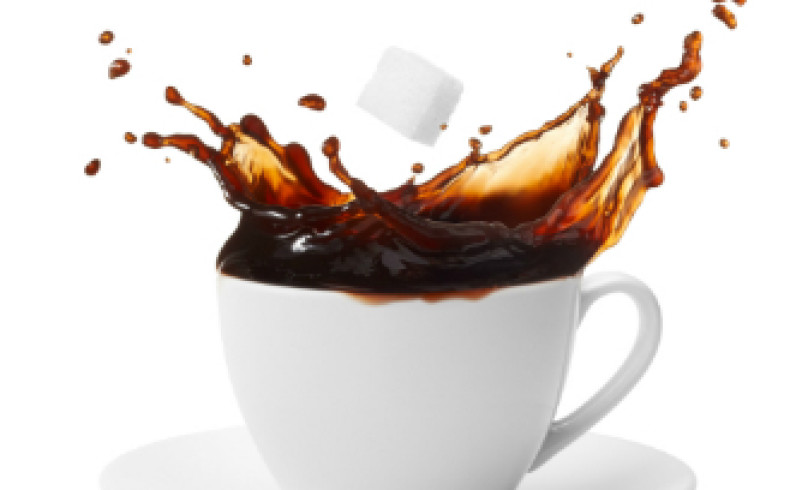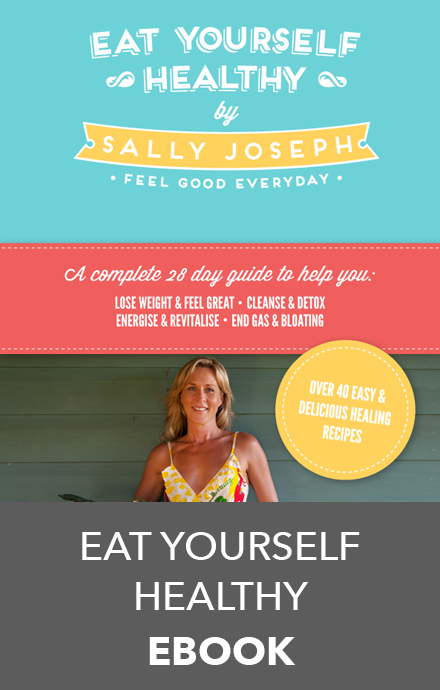
You may recall when we explored the consumption of conventional cow’s milk in an earlier post, and my views on the related issues. Coffee is the Bonnie to the milk, Clyde – a perfect partner in crime. Consider for a moment how much milk the average coffee drinker consumes with their regular cappuccino or flat white…. you could be looking at up to three to four cups per day, depending on your habit!
We have become a society that associates coffee with waking up, perking up, socialising and a means to escape the office for our regular coffee break (a thinly disguised reprieve from the smoko). Business decisions are now made over lattes, and more often than not, coffee is the first thing people put into their body of a morning, even before a meager glass of water!
Coffee has topped the list as Australians top addiction, overtaking other vices such as alcohol, gambling, and illicit drugs.
A spokesman from the University of NSW National Drug and Alcohol Research Centre (NDARC) said the average daily caffeine intake was 240mg – equivalent to four cups of coffee a day and as more people quit smoking, they are swapping the stimulant effects of a cigarette with those contained in caffeine and sugar.
Whether we’re reaching for the hot beverage in question, a sugar hit, pharmaceutical or recreational stimulants, as far as the effects on our adrenal glands are concerned, they are all pretty much on par – the only difference being the level of consumption.
Stealing your senses
I regularly hear the catch-cry from people, ‘I can’t function until I have a coffee’ as well as, ‘I don’t have a bowel movement until I’ve had my morning coffee.’ So beyond using caffeine to get us out of bed in the morning, many people rely on it to stimulate their bowels, rather than addressing the underlying cause of their sluggish digestive function.
The energy surge and mental stimulus we get from drinking coffee, not to mention stirring up our bowels, is actually artificial in that it is as result of an adrenalin surge produced by the caffeine, rather than produced from real energy, generated by our body. Like sugar, caffeine is a stimulant of the neurotransmitter serotonin, the hormone in the brain that regulates sleep, mood and appetite. When the body relies too heavily on substances such as caffeine to regulate serotonin production and energy, this will impact on the body’s natural ability to regulate healthy serotonin production. And that’s the issue, right there.
The killer is in consumption
Now before you dismiss this with the ‘Everything Is Bad For Me’ argument, I am not saying that coffee is the problem here. I’m not even saying ‘never have a latte again.’ I am more pointing to the way we consume coffee, and how that directly relates to the health issues prevalent in our society today. In my view caffeine is just a socially acceptable drug, with not enough consideration given to the long term health effects of excess consumption.
Excess consumption is commonly associated with adrenal fatigue, a 21st century syndrome becoming more prevalent in our society. Adrenal fatigue results from prolonged, excessive production of cortisol, the hormone produced by the adrenal glands in response to stress..
Stimulating the addiction
In the case of chronic adrenal fatigue, people are using caffeine as a means to avoid slipping further into the fatigue pit. This adrenal fatigue I am talking about, commonly begins with that morning and afternoon energy slump, that sensation where you feel like a lead balloon upon waking and as though you’re trawling through wet cement by the afternoon. To counter this, the average office worker consumes three to four coffees a day. I’ve seen extreme cases where consumption can reach up to 11 per day. Now, that’s a drug habit in itself!
When the body associates caffeine with stimulus, we experience a physical addiction as well as a mental one. The withdrawal effect is further evidence, as it constricts the cerebral blood vessels in the brain so if you’re used to drinking several cups a day and then decide to quit, the blood vessels will dilate, which is why so many of us experience a headache when we do.
Your liver knows caffeine is a toxin
Caffeine is viewed by your liver as a toxin. I actually use caffeine tablets in one of my pathology tests to assess a patient’s liver function. We measure the ‘caffeine clearance rate’ within 24 hours of taking the tablet. This is used as an indication of how effectively the liver is processing toxins.
I know this is a lot to take in, so have a think about your coffee drinking routine this week and next week I’ll post the best way to kick your addiction. In the meantime, see this week’s recipe for a warming alternative to coffee.
Need a little incentive to cut back on the coffee… to go into the draw to win one return ticket to India all you need to do is follow these three easy steps:
- subscribe to my blog
- ‘like’ my facebook page
- purchase two packs of delicious Rainbow Chai or Dandelion tea.
… and before you know it, you could be sipping on chai tea in exotic India! What better reason have you got to cut back on coffee!
*conditions apply. Terms and Conditions.
Health & Lifestyle Tips
Delicious Healthy Recipes
Educational & Recipe Videos









Hi Jean, perhaps you could try supplementing some magnesium – I recommend Bioceuticals Ultra Muscleze – http://www.eatyourselfhealthy.com.au/cart/product-details.php?g_ProductID=746
Start with 1 tea spoon per day and build up to twice daily and ensure you are drinking 2 litres of water per day to stay hydrated as coffee is a diuretic. This kind of reaction is an indication your liver detoxification pathways are in need of some TLC – so perhaps its time to think about a detox! I’m currently running a competition to win a detox pack – check it out here http://www.www.flatseven.org/sallyjoseph/win-a-detox-pack-and-consultation/
Take care and let me know how you go with kicking the coffee! Sally x
Hi Jean, perhaps you could try supplementing some magnesium – I recommend Bioceuticals Ultra Muscleze – http://www.eatyourselfhealthy.com.au/cart/product-details.php?g_ProductID=746
Start with 1 tea spoon per day and build up to twice daily and ensure you are drinking 2 litres of water per day to stay hydrated as coffee is a diuretic. This kind of reaction is an indication your liver detoxification pathways are in need of some TLC – so perhaps its time to think about a detox! I’m currently running a competition to win a detox pack – check it out here http://www.www.flatseven.org/sallyjoseph/win-a-detox-pack-and-consultation/
Take care and let me know how you go with kicking the coffee! Sally x
I only have one a day and am having a hard time stopping as I get a very bad headacke when I go two days without one, Flat white. Thats my fav.,
I only have one a day and am having a hard time stopping as I get a very bad headacke when I go two days without one, Flat white. Thats my fav.,
Thanks for your comment Peter. As I mentioned in my post – “I am not saying that coffee is the problem here. I’m not even saying ‘never have a latte again.’ I am more pointing to the way we consume coffee, and how that directly relates to the health issues prevalent in our society today.” Those who are addicted to caffeine and rely on it as a means to stimulate their energy are the ones at risk of experiencing the negative side effects associated excess caffeine consumption. In these cases, the effects far out way any possible health benefits coffee can offer. As a Nutritionist, this is the point I am keen to communicate in this particular post, as after 13 years in clinical practice I have seen thousands of cases where people are abusing caffeine and it is contributing to their health problems they consult me on, namely chronic fatigue, cognitive and hormonal imbalances such as thyroid and infertility.
Thanks again,
Sally
Thanks for your comment Peter. As I mentioned in my post – “I am not saying that coffee is the problem here. I’m not even saying ‘never have a latte again.’ I am more pointing to the way we consume coffee, and how that directly relates to the health issues prevalent in our society today.” Those who are addicted to caffeine and rely on it as a means to stimulate their energy are the ones at risk of experiencing the negative side effects associated excess caffeine consumption. In these cases, the effects far out way any possible health benefits coffee can offer. As a Nutritionist, this is the point I am keen to communicate in this particular post, as after 13 years in clinical practice I have seen thousands of cases where people are abusing caffeine and it is contributing to their health problems they consult me on, namely chronic fatigue, cognitive and hormonal imbalances such as thyroid and infertility.
Thanks again,
Sally
Sally,
Your comments above miss the bigger part of the picture. In focusing only on caffeine you have missed the main part of the coffee story:- moderate diabetes II reduction and moderate reduction of many cancers. Also note that coffee remains the only known product that improves LFT’s (liver indicators in blood tests) in cases of cirrhosis and other advanced liver illness. Someone in that state may get the wrong impression from your articel.
Caffeine and milk are an issue for some (many). But there are ways to be careful of those and still be able to consume this bright red tropical berry.
Peter W
Sally,
Your comments above miss the bigger part of the picture. In focusing only on caffeine you have missed the main part of the coffee story:- moderate diabetes II reduction and moderate reduction of many cancers. Also note that coffee remains the only known product that improves LFT’s (liver indicators in blood tests) in cases of cirrhosis and other advanced liver illness. Someone in that state may get the wrong impression from your articel.
Caffeine and milk are an issue for some (many). But there are ways to be careful of those and still be able to consume this bright red tropical berry.
Peter W
Hi Matt
you better get reading part 2 and 3 for ways to kick the caffeine and healthy substitutes to replace it with. Coffee that’s been decaffeinated using a water process is ok, but then as I mentioned in the first coffee post, this does not negate the milk issue if your drinking a few a day, unless your having a macchiatto. Just be sure to steer clear of instant decaf as nasty chemicals are used to extract the caffeine!
Cheers Sal
Hi Matt
you better get reading part 2 and 3 for ways to kick the caffeine and healthy substitutes to replace it with. Coffee that’s been decaffeinated using a water process is ok, but then as I mentioned in the first coffee post, this does not negate the milk issue if your drinking a few a day, unless your having a macchiatto. Just be sure to steer clear of instant decaf as nasty chemicals are used to extract the caffeine!
Cheers Sal
Now I’m over stimulated reading your post Sa!!
Is (water processed) decaf an acceptable alternative ?
Matt
Now I’m over stimulated reading your post Sa!!
Is (water processed) decaf an acceptable alternative ?
Matt